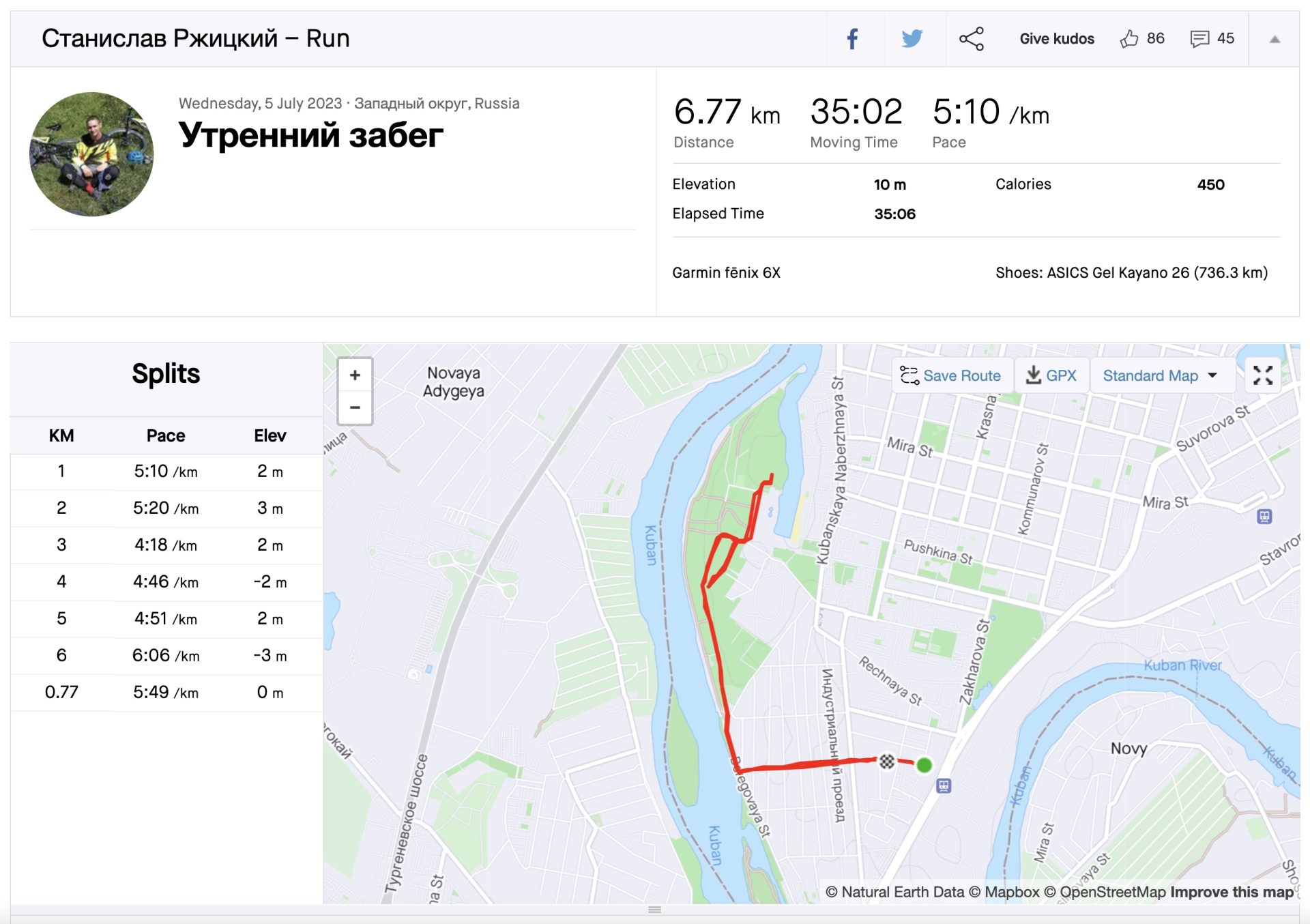Social fitness app Strava is in the news this week, not because of some new feature set or pricing change, but because of its possible, indirect link to the assassination of a Russian military commander.
Media outlets in Russia and Ukraine report that Stanislav Rzhitsky was shot and killed while out running on Monday in the city of Krasnodar in southern Russia. The 42-year-old was on a Ukrainian blacklist of alleged war criminals, having been accused of involvement in an attack on the Ukrainian city of Vinnytsia in July 2022 which killed 23 civilians. At the time, Rzhitsky was reportedly commanding the Krasnodar submarine in the Black Sea, which launched missiles at Vinnytsia.
More recently, Rzhitsky had been deputy head of the department for mobilization in Krasnodar and the surrounding region.
So how does Strava come into it? In the wake of Rzhitsky’s death, Baza, a Russian Telegram channel with links to security services, suggested the killer had tracked Rzhitsky’s movements on Strava. A Strava account seemingly belonging to Rzhitsky does show an avid cyclist and runner who regularly exercised in and around Krasnodar. His runs regularly took him close to the spot where he was killed.

Ukrainian authorities have officially denied any involvement in Rzhitsky’s death, but there's reason to be sceptical of that account. A Telegram post from Ukrainian military intelligence confirming the attack was particularly detailed in its explanation of the killing, without taking responsibility or saying where the information came from.

There's another strange twist to the tale that could also point to Ukrainian involvement. On the Strava file for Rzhitsky’s last run, the list of those giving kudos includes an intriguing name: Kyrylo Budanov, the same name belonging to the head of Ukraine’s military intelligence.
Of course, there's no guarantee this otherwise-inactive Strava account belongs to Ukraine's spymaster – there aren't any verifiable photos of him riding bikes like on Rzhitsky’s account, say – but stranger things have certainly happened. And Rzhitsky certainly wouldn't be the first Russian that Ukraine has targeted since the war began – indeed, Budanov has previously admitted that Kyiv is conducting assassinations inside Russia.

As you might recall, this isn't the first time Strava has been linked with issues of military security in recent years. In late 2017, global heatmap data compiled by Strava revealed sensitive information about military operations in Syria, Yemen, Niger and elsewhere.
It's currently unconfirmed whether the assassin did use Strava to track Rzhitsky’s movements, but it would have been easy to do so with information that was (and still is) publicly available. That's fuel for thought for all Strava users who care about their privacy, whether they're wanted for alleged war crimes or not.
Did we do a good job with this story?






